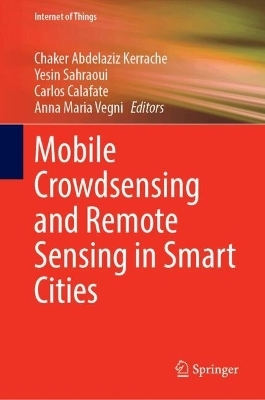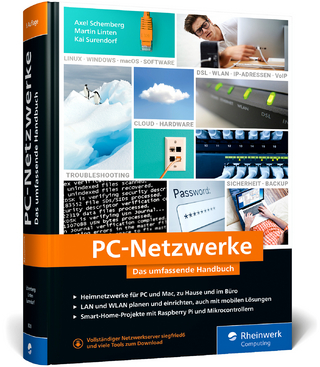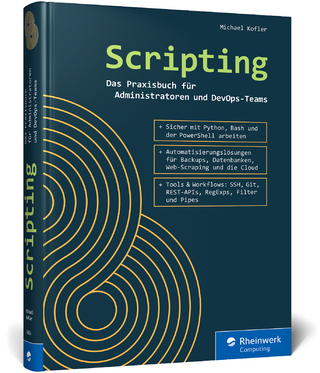
Mobile Crowdsensing and Remote Sensing in Smart Cities
Springer International Publishing (Verlag)
978-3-031-72731-3 (ISBN)
- Noch nicht erschienen - erscheint am 10.02.2025
- Versandkostenfrei innerhalb Deutschlands
- Auch auf Rechnung
- Verfügbarkeit in der Filiale vor Ort prüfen
- Artikel merken
This book focuses on the benefits of mobile crowdsensing (MCS) and remote sensing applications in smart cities, particularly in creating an intelligent context-aware environment, especially in cases of infectious diseases that cause widespread loss of life. The authors first introduce the concepts of MCS and remote sensing in smart cities. The authors go on to discuss topics such as power of mobile edge and cloud computing for data analytics; strategies to effectively manage and mitigate data redundancy; crowd management during the Covid-19 pandemic; techniques to detect communities in complex data through social sensing; and much more. The authors also aim to show that the efficient implementation of MCS and remote sensing in various applications comes with several challenging issues that need to be addressed, including data quality and reliability, security and privacy, and ethical considerations.
- Focuses on the benefits of mobile crowdsensing (MCS) and remote sensing applications in smart cities;
- Covers technical details of remote sensing starting from the communication support to the application;
- Includes overcoming challenges including data quality and reliability, security and privacy, and ethical considerations.
Chaker Abdelaziz Kerrache (ch.kerrache@lagh-univ.dz) received his M.Sc. degree in computer science from the University of Laghouat, Algeria, in 2012, and his Ph.D. degree in computer science from the same university in 2017. He currently serves as an Associate Professor at the Department of Computer Science, as well as the Head of the Computer Science and Mathematics Laboratory (LIM), and the director of the business incubator at the University of Laghouat. Additionally, he is a member of the National Committee for Digitization and was ranked among the world's top 2% scientists in 2023. His research interests encompass trust and risk management, secure multi-hop communications, Brain-Computer Interface (BCI), Named Data Networking (NDN), and Unmanned Aerial Vehicles (UAVs).
Sahraoui Yesin is an Assistant Professor at National Higher School of Artificial Intelligence in Algiers, Algeria. He received his Ph.D. degree in Computer Science from the University of Ouargla in 2022. His research interests include Mobile mobile crowd sensing, Deep learning paradigm, game theory, and security issues for communications networks.
Carlos Tavares Calafate is a full professor in the Department of Computer Engineering at the Technical University of Valencia (UPV) in Spain. He graduated with honors in Electrical and Computer Engineering at the University of Oporto (Portugal) in 2001. He received his Cum Laude Ph.D. degree in Informatics from the Technical University of Valencia in 2006, where he has worked since 2002. His research interests include ad-hoc and vehicular networks, UAVs, Smart Cities & IoT, QoS, network protocols, video streaming, and network security. To date he has published more than 450 articles, several of which in journals including IEEE Transactions on Vehicular Technology, IEEE Transactions on Mobile Computing, IEEE/ACM Transactions on Networking, Elsevier Ad hoc Networks and IEEE Communications Magazine. He is associate editor for several international journals from editorials including Elsevier, Hindawi, MDPI, IET, and SAGE, and has participated in the TPC of more than 250 international conferences. He is ranked among the World's Top 2% Scientists, and also among the top 100 Spanish researchers in the Computer Science & Electronics field. He is a founding member of the IEEE SIG on Big Data with Computational Intelligence and the IEEE SIG on Green Internet of Vehicles.
Anna Maria Vegni (Senior member, IEEE) is a tenure-track Assistant Professor in the Department of Engineering at Roma Tre University (Rome, Italy), since March 2020. She received the Ph.D. degree in Biomedical Engineering, Electromagnetics and Telecommunications from the Department of Applied Electronics, Roma Tre University, in March 2010. She received the 1st and 2nd level Laurea Degree cum laude in Electronics Engineering at Roma Tre University, in July 2004, and 2006, respectively. In 2009, she was a visiting researcher in the Multimedia Communication Laboratory, directed by Prof. Thomas D.C. Little, at the Department of Electrical and Computer Engineering, Boston University, Boston, MA. Her research activity focused on vehicular networking supported by heterogeneous wireless networks. She a member of ACM and an IEEE Senior Member. In June 2021, she got the Italian Habilitation (Abilitazione Scientifica Nazionale) for Full Professorship in Telecommunication Engineering. She is involved in the organization of several IEEE and ACM international conferences and is a member of the editorial board of IEEE Communications Magazine, Ad Hoc Networks, Journal of Networks and Computer Applications, Nanocomnet Elsevier journals, IEEE JCN, ITU J-FET and ETT Wiley journal.
Chapter 1: Introduction.- Mobile Crowdsensing and Remote Sensing in Smart Cities.- Part 1: IoT for sustainability & life-quality.- Chapter 2: The Role of IoT in Environmental Sustainability: Advancements and Applications for Smart Cities.- Chapter 3: Sensors and Metaverse-Digital Twin Integration: A Path for Sustainable Smarter Cities.- Chapter 4: Bringing the Green into the Screen: Remote Sensing and Smart Green Governance in Urban Forest Management.- Chapter 5: Advancements in 5G-IoT Technology based Healthcare: A Focus on Healthcare Monitoring for Smart Cities.- Part 2: Smart cities' applications based on crowdsensing and remote sensing.- Chapter 6: From Mobile Crowdsensing to Contact Tracing.- Chapter 7: Deep Data Inference on Sparse Mobile Crowdsensing.- Chapter 8: Crowd Management using Mobile Crowdsourcing and Remote Sensing during the COVID-19 Pandemic.- Chapter 9: A Trusted Crowdsensing Approach for Governing Smart Healthcare using Blockchain Technique.- Chapter 10: Advancing Smart City Infrastructure with V2X Vehicle-Road Collaboration - Architectural and Algorithmic Innovations.- Chapter 11: Safety in the Sky: Cloud-Powered Smart Security for Vehicular Crowdsensing.
| Erscheint lt. Verlag | 10.2.2025 |
|---|---|
| Reihe/Serie | Internet of Things |
| Zusatzinfo | X, 241 p. 74 illus., 71 illus. in color. |
| Verlagsort | Cham |
| Sprache | englisch |
| Maße | 155 x 235 mm |
| Themenwelt | Mathematik / Informatik ► Informatik ► Netzwerke |
| Technik ► Elektrotechnik / Energietechnik | |
| Technik ► Nachrichtentechnik | |
| Schlagworte | community detection • data analytics • Mobilecrowd sensing • Remote Sensing • smart cities |
| ISBN-10 | 3-031-72731-2 / 3031727312 |
| ISBN-13 | 978-3-031-72731-3 / 9783031727313 |
| Zustand | Neuware |
| Haben Sie eine Frage zum Produkt? |
aus dem Bereich


